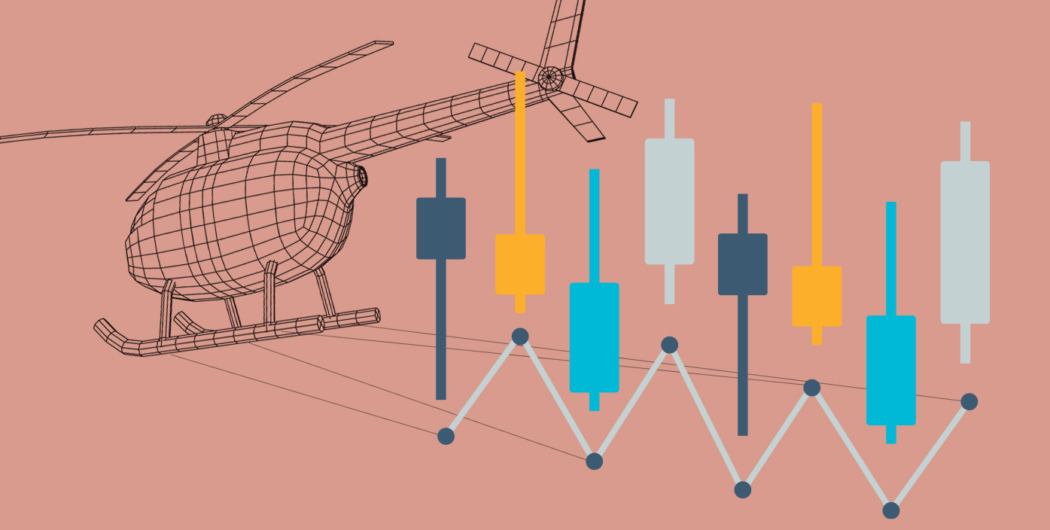

Many traders are tempted to place their trades very early in the morning and close them when it’s dusk. This type of short-term trading—helicopter trading strategy sounds cool for some traders, but unfortunately, it can come with many challenges.
There are many pitfalls in short-term timeframes, which can quickly sum up the loss of your trades and ultimately blow up your account. While the helicopter trading strategy is a popular and attractive style among traders, we are here to show you why it will not work in 2022.
According to the New York Stock Exchange (NYSE) and Financial Industry Regulatory Authority (FINRA), helicopter traders can be classified based on their trading frequency.
If a trader opens and closes their trades up to 4 times in five days, and all of those trades make up more than 6% of their trading activity, such an individual is considered a “pattern day trader.”
Different Helicopter trading strategies
Helicopter trading harnesses different strategies that give traders the confidence to close the day on a good note.
The basic Helicopter trading strategies include:
1. Overclocking
Overclocking is a helicopter trading strategy involving the trader seeking to profit from little price difference. This trade is usually executed quickly and is often opened and closed within a few minutes and sometimes seconds.
A helicopter trader must be exact on entry and exit strategy for this trading strategy to have a positive effect. Because the trading time is short, it may not be the best approach for traders who want to focus more on mastering the art.
Based on the chart pattern shown above, a trader may be convinced that Stock X, priced at $15.20, will be due for a little. They then buy the stock and sell it quickly (in a couple of minutes) when the price hits $16.00.
2. News-based trading
Helicopter trading also comes in the form of news-based moves. This is when a trader utilizes timely information or news from reliable sources regarding events that will likely affect the price movement of stocks. Special events like the announcement of earnings and acquisitions can increase the volatility of a market stock to benefit helicopter traders.
A helicopter trader can read from a trusted news source about the intention of Company X to announce their plans to purchase Company Y with massive potential in view. The trader then buys stock in Company Y before the announcement date when the market price is still low. Announcement day arrives, and Company Y stock price moves sharply with trader gaining.
3. High-frequency trading (HFT)
As the name implies, high-frequency trading involves the bulk execution of large orders that are transacted swiftly using an automated trading platform. This platform uses a complex algorithm that can analyze market trends and send out multiple orders meant to benefit the trader.
High-frequency traders often look out for little price discrepancies while trading the same asset on different exchanges.
Why Helicopter trading strategy won’t work
Helicopter trading is not wrong and works for traders who know how to work with short-term timeframes. However, this trading strategy leaves out the beauty of harnessing the actual trading experience, which can fortify one’s trading habits.
However the case may be, it all still boils down to your preference as a trader. We, however, recommend that you understand both short and long-term trading timeframes before settling for what you deem fit to make your trading successful.







